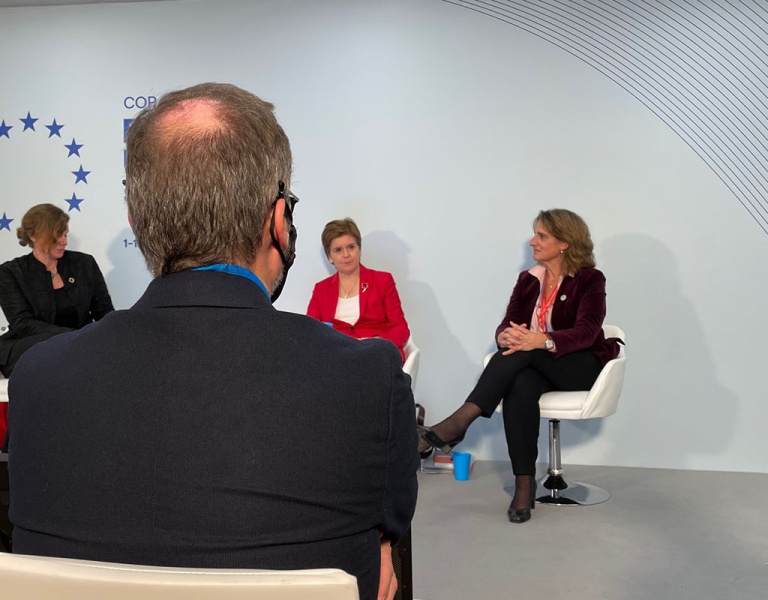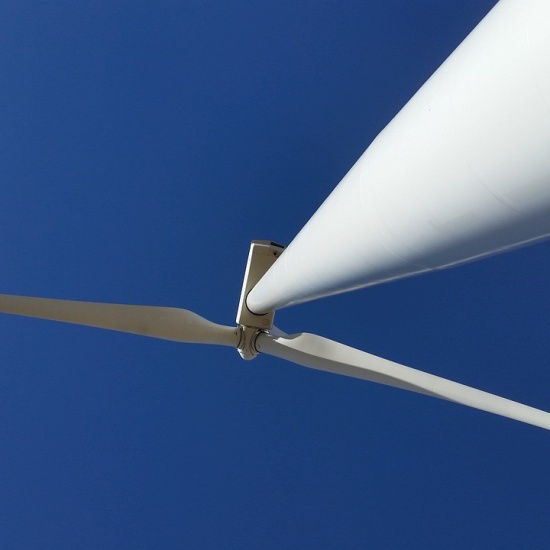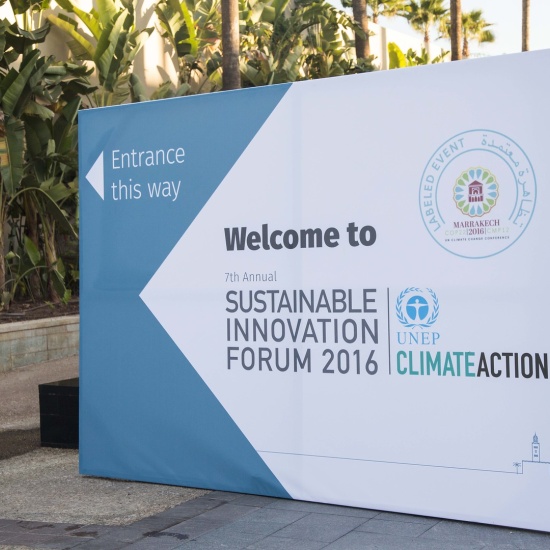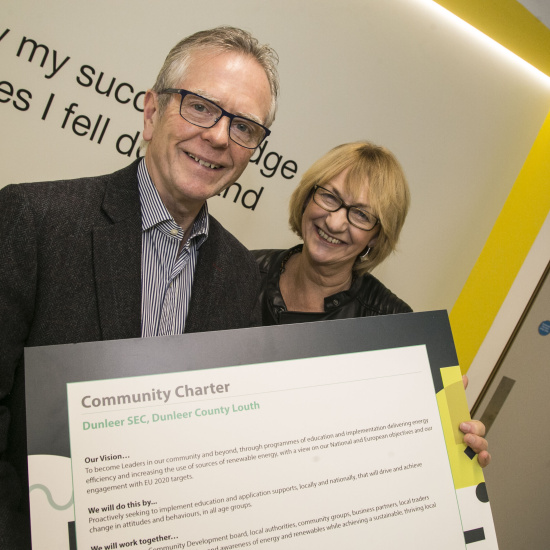Post Cop26 - Climate Action in Ireland
COP26 was exhilarating and exhausting, leaving many hopeful, others scared and most emotional. Every day I witnessed passionate people share powerful actions that are underway, while the deep negotiations on the meaning of words within agreements happened in parallel hallways.
Some welcomed announcements such as the agreement between the United States and China to cooperate on limiting emissions. Together they account for almost 40% of the world's annual carbon output. But underpinning it all, was the bean counting of commitments to see if it keeps 1.5oC alive.
Change afoot, and not a moment too soon

As COP26 President Alok Sharma concluded proceedings, with an emotional apology for the last-minute changes to the global climate deal replacing 'phase out' with the 'phase down' of unabated coal, what did we learn for Ireland? Globally, different groups will take different perspectives on the success or otherwise of the deal. In many ways, the success will likely be judged on whether enough countries return to COP in 2022 with enough raised ambitions for 2030 to keep 1.5oC of global warming in reach. As UN Secretary General Antonio Guterres said progress is not often taken in a straight line but that we are in an emergency where the fight of our lives must be won.
Midway through the second week former President of Ireland Mary Robinson was captured in an interview with Sky TV, emotional at the sheer frustration of some negotiating teams just not seeing the light. It was her cry for action. 'You can't negotiate with Science', she said. This is something the COVID pandemic has taught us in Ireland. Our society has demonstrated how it values the benefit and contribution of science and data to our lives, manifesting in largely society-wide acceptance of restrictions, and an almost 91% vaccination rate amongst those eligible. In most cases, Ireland has demonstrated trust in systems where policymakers listen to and consider the science when making decisions. It also demonstrated how cohesive and fair action in society really does make a difference. If there's one thing we need to learn from COP26, is the urgency for us to replicate this cohesiveness in delivering our climate targets.
Ireland's contribution
Often the argument in Ireland on climate action is that we are too small, change here won't make a difference. The truth is that the power is in collective action. As Climate Change Advisory Council member, Dr. Cara Augustenborg said, a quarter of the world's emissions come from small countries such as Ireland. Each small country contributes less than 2% each, but if we don't all do our bit, than our contribution to emissions amounts to the equivalent of bigger contributors such as the US and China. The Global Carbon Project demonstrates where Ireland sits in terms of emissions per capita, and it shows we have much room to improve. In 2021, we have made landmark actions to move forward, with the adoption of the Climate Action and Low Carbon Development Act, the introduction of Carbon Budgets and the launch of an ambitious Climate Action Plan 2021, outlining actions set to achieve a 51% reduction in overall greenhouse gas emission by 2030, and net zero emissions by 2050. Key to its success is implementing ambitious actions in the energy sector, to building infrastructure while reimagining our energy demands.
"Midway through the second week former President of Ireland Mary Robinson was captured in an interview with Sky TV, emotional at the sheer frustration of some negotiating teams just not seeing the light. It was her cry for action. 'You can't negotiate with Science' , she said."
Transport
Decarbonising transport was a key feature of the COP proceedings. Contributing approximately a third of all emissions, transport consists of the many modes in which people and freight are transported. In Ireland, transport is a significant source of energy related CO2 emissions, at approximately 40% of all energy related emissions.
There was much criticism at COP that the focus on transport was on electrification of existing modes while 'active travel', where planning is centred around modes of transport where people walk or cycle, was in second place. We've heard similar at home, but the urgency of the matter means it's important to ensure that one isn't pitted against the other. Many approaches need to be adopted in parallel and in record time, especially in a small country with urban clusters and large rural communities.
As part of the Irish Climate Action Plan, targets are set to electrify the national public transport fleet with at least 1,500 electric buses in operation by 2030. Overall, the target is to nationally increase the number of electric vehicles to circa 1 million by 2030, aided by national grants through the SEAI. In June 2021 over 37,700 electric vehicles were being driven on Irish roads. In 2025, the target is for this to increase to 181,000. While electric vehicle numbers remain small compared to those of gasoline and diesel cars around the world, sales are climbing and have exploded in Ireland very recently. The plan includes commitments to ensure appropriate charging infrastructure is in place to support this transition.
This is in tandem with a target to enable daily active travel journeys through the expansion of rail services and cycling/walking infrastructure. In the simplest terms it's just about doing things differently and the net result will essentially benefit our health and that of our communities. Ireland has had mixed experiences in support to walking and cycling infrastructure, but we have been successful in introducing schemes like the Dublin Bikes and Walk to School efforts. There is room for more. In Scotland, free bike pilots working with established community networks provide free bikes to school age children who cannot afford one. At its heart, it is supporting young people to think about alternatives to cars from an early age.
Transport Scotland also spoke at COP on how it is reimagining the purpose of the rail infrastructure nationally. Having a similar make up to Ireland, Scotland is changing how it sees the train system to a larger service for public good, where emptier trains are earning their keep by moving freight. Ultimately this moves high emission, large freight movements in HGVs onto existing rail networks. This is reflected in Irish Rail's 2027 strategy, which calls out its key role in the national Climate Action Plan through strengthening regional connectivity and moving goods as well as people.
Through the last two years our mode of transport and need to move has fundamentally changed. Our lives have been turned upside down, forced to stay home, to stay local. During this time, as noted in the SEAI National Energy Balance, we have seen a marked decrease in transport energy use. Now as economic growth continues, and people return to the workplace, we simply must do better. We must ensure we deliver on our infrastructural commitments nationally and make decisions simple - we must walk more, shop local more, and use public transport more. We need to challenge social norms, and to embrace these changes, for the benefit they bring to our lives, rather than rue them as a consequence of climate actions.
Data and Policy
The bridge between the data experts and the policy decision makers continues to need effort, it is worth it. A great example is in the current effort underway between some IPCC authors and groups such as the C40 Cities to create The Summary for Urban Policymakers. This unprecedented effort will bring scientists together with city networks to ensure the most up to date science is translated in the most meaningful way to support immediate and informed action at the local level.
The Climate Action Tracker, an independent scientific analysis that tracks climate actions against the globally agreed Paris Agreement, shows us how much more we need to do to ensure we keep 1.5 alive. The actions already identified in global action plans rely heavily on delivery of financial incentives, infrastructure and supports, and on behavioural change at a societal level.
As I boarded the flight for COP26, it struck me that it was over two years since I flew. As a child of an airline couple and having travelled across the skies since I was born, this was quite extraordinary, but we live in extraordinary times. Walking the corridors of COP26, where every sustainability choice was made simple by water refill stations, washable reusable cups, a public transport travel pass, menus with carbon ratings for each choice, it struck me as a microcosm of the cultural change we need. I am not ignorant to my flying to COP26, it was necessitated through circumstance but I am also so very aware that I will never fly unconsciously again. Social norms and behaviours are so critical to us as human beings. Reaching that tipping point is going to play a significant role in our ability to make the changes required. This is just the beginning, change is going to be part of our lives for the foreseeable future, we may as well get comfortable with it. We must, as George Monbiot says, change the status quo on what is acceptable. How many more pleas from people like Mary Robinson do we need? Ireland has paved its path, and must deliver, but it won't do it without you and me.
For more information on the actions you can take to reduce your carbon footprint, please visit our webpage 'Take climate action'.
Take Climate Action



